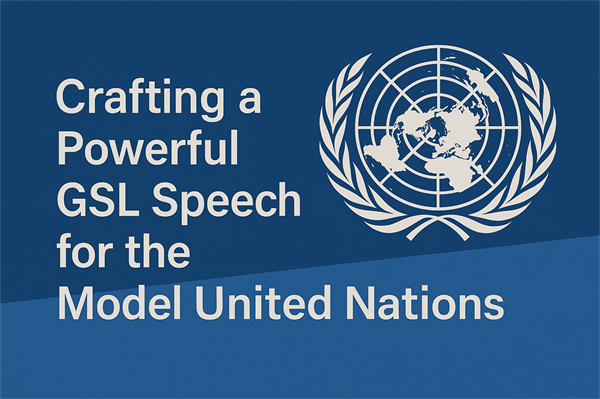A Beginner’s Guide to Model United Nations (MUN)
Introduction: Model United Nations (MUN) is a simulation of the United Nations, where students from various schools and universities come together to role-play as delegates of different countries. It’s a platform where young minds engage in diplomacy, debate, and decision-making on pressing global issues. Participating in MUNs helps students develop essential skills such as public speaking, research, teamwork, and critical thinking.
What is Model United Nations? In MUN, participants are assigned countries to represent in various committees of the United Nations, such as the General Assembly, Security Council, or specialized agencies like WHO or UNESCO. The goal is to debate, negotiate, and draft resolutions on global issues from the perspective of the assigned country.
How Does MUN Work?
Preparation: Before the conference, participants (called delegates) research their assigned country’s policies, history, and stance on the topics to be discussed. They also familiarize themselves with the rules of procedure, which govern the debates.
Opening Ceremony: MUN conferences typically begin with an opening ceremony where all delegates gather. Keynote speakers, often experienced diplomats or professionals, may address the participants to set the tone for the conference.
Committee Sessions: The heart of MUN lies in the committee sessions. Here, delegates present their country’s position on the topics, debate with other delegates, form alliances, and work together to draft resolutions. These sessions are moderated by the chairperson, who ensures the debate follows the rules of procedure.
Drafting Resolutions: A resolution is a formal document that outlines the committee’s recommendations or decisions on the issue at hand. Delegates work together in blocs (groups of countries with similar positions) to draft and amend these resolutions. The goal is to reach a consensus and pass the resolution with a majority vote.
Voting: Once the debate on a resolution concludes, it is put to a vote. Delegates vote in favor, against, or abstain. A resolution needs a majority to pass, and in some committees, the resolutions may be binding.
Closing Ceremony: The conference ends with a closing ceremony, where awards are often given to outstanding delegates. This is also a time to reflect on the achievements of the conference and the lessons learned.
Why Participate in MUN?
- Skill Development: MUN helps participants hone essential skills like public speaking, negotiation, diplomacy, and research. It also fosters critical thinking and problem-solving abilities.
- Global Awareness: Delegates gain a deeper understanding of international relations, global issues, and the workings of the United Nations.
- Networking: MUN conferences bring together students from diverse backgrounds, offering a platform to build lasting friendships and professional connections.
- Confidence Building: By debating and negotiating in a formal setting, participants build self-confidence and learn to articulate their thoughts clearly and persuasively.
Tips for First-Time Delegates:
- Research Thoroughly: Understanding your country’s position and the topics at hand is crucial. The more you know, the more confident you’ll be in the debates.
- Engage Actively: Don’t be afraid to


Comments
Post a Comment